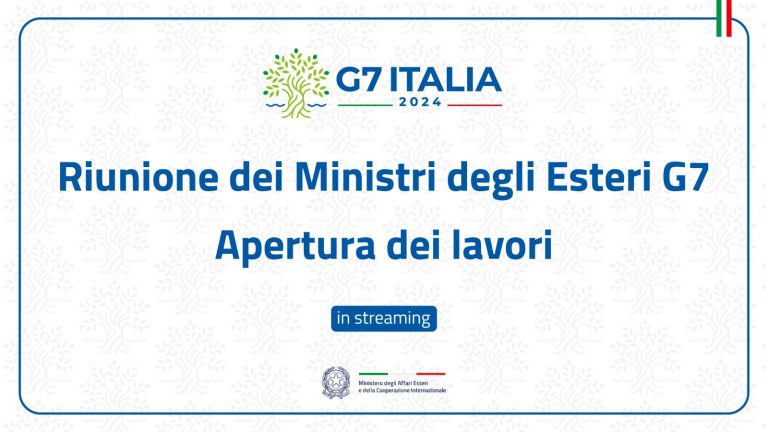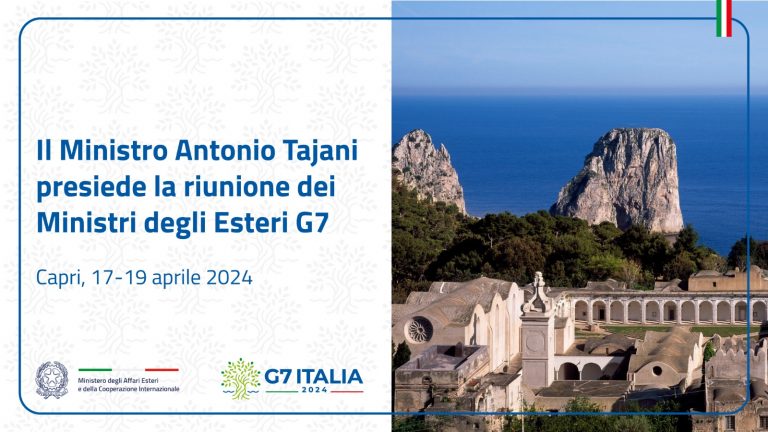Ministerial Meeting in support of Lebanon’s Armed Forces and Internal Security Forces
(Rome, 15 March 2018)
JOINT STATEMENT
1. A Ministerial Meeting in support of Lebanon’s Armed Forces and Internal Security Forces was held in Rome on 15 March 2018 under the auspices of the International Support Group for Lebanon (ISG) and under the chairmanship of the United Nations and Italy.
2. Participants expressed their appreciation to Italy’s Foreign Minister Alfano for convening the meeting that was opened by Italy’s Prime Minister Paolo Gentiloni, UN Secretary-General Antonio Guterres and Lebanon’s Prime Minister Saad Hariri. 40 countries and organizations, including the European Union and the League of Arab States, took part in the event.
3. Participants expressed their commitment to the stability, security and sovereignty of Lebanon and their support to the ongoing efforts of the Lebanese authorities to prepare the holding of legislative elections of 6 May 2018 in accordance with international standards. They recalled the need to protect Lebanon from the crises that are destabilizing the Middle East and called upon regional States and organizations to work for the political, social, economic, and financial stability and security of Lebanon, in full respect of its sovereignty and integrity.
4. Participants welcomed Prime Minister Hariri, and thanked the Government of Lebanon for its concerted efforts to develop long-term plans for strengthening the security, stability and sovereignty of Lebanon and the authority of the Lebanese state. They recalled the statements of the International Support Group on 8 December 2017, and of the Security Council on 19 December 2017, commending the role of the Lebanese Armed Forces (LAF) and of all state security institutions in protecting the country, its borders and its population, and recalling that the LAF are the only legitimate armed forces of Lebanon, as enshrined in the Lebanese constitution and Taif Agreement. Participants commended the role of Lebanon’s Internal Security Forces (ISF) amongst the legitimate security institutions of the Lebanese state.
5. Participants recalled relevant provisions of the Taif Accords and of Security Council resolutions 1559 (2004), 1680 (2006) and 1701 (2006) including provisions that there be no weapons or authority in Lebanon other than that of the Lebanese state, no foreign forces in Lebanon without the consent of its government, and no sale or supply of arms related materiel to Lebanon except as authorised by its government. Participants reiterated the need for full respect and implementation of Security Council Resolutions. They called on all Lebanese parties to resume discussions towards a consensus on a National Defence Strategy and welcomed the 12 March 2018 statement of the President of the Lebanese Republic Michel Aoun in this regard.
6. Participants welcomed the statement by Lebanon’s Prime Minister at today’s meeting reaffirming his Government’s commitment to the policy of disassociation, as a matter of collective responsibility of all parties, to shield Lebanon from regional conflicts and to refrain from interfering in the internal affairs of other states. Consistent with recent statements by the ISG and the Security Council, Participants urged Lebanon’s leaders to implement and further expand without delay a tangible policy of disassociation as a matter of priority, as spelled out in previous declarations, in particular the 2012 Baabda Declaration.
7. Participants commended the success of the LAF, the ISF and other security institutions in meeting the increasingly complex requirements for maintaining the security and stability of Lebanon since the Rome Ministerial Conference of June 2014. They saluted the role of the LAF in successfully containing and ultimately defeating Daesh, Al Nusra and other UN designated terrorist groups, and consolidating state authority along Lebanon’s Northern and Eastern border, and its efforts to build its naval and air force capacities. They commended the ISF, the LAF and other state security institutions for their effectiveness in protecting civilians from terrorist activities inside of Lebanon by actively coordinating to prevent terrorist attacks and disrupt the formation of terrorist cells and capacities. Participants praised the courage and determination of military and security personnel involved in these efforts, noting the sacrifices of the 22 personnel who lost their lives in operations in the Eastern region, and of their families. They noted the humanitarian efforts of the LAF to clear affected areas of landmines and unexploded ordinance so as to safeguard local communities and enable social and economic development.
8. Participants welcomed the updated Capability Development Plan (CDP) of the Lebanese Armed Forces, and the Strategic Plan (SP) of the Internal Security Forces, which provide a five-year framework for strengthening security and consolidating the authority of the state. Participants endorsed the Lebanese Government’s vision of the LAF as the sole defender of the Lebanese state and protector of its borders, and of the ISF as a key instrument in building the monopoly of the use of Force by the Lebanese state. They welcomed Lebanon’s own budgetary contributions towards both plans and appreciated the plans’ commitment to clarity and transparency, their focus on a transformative reform agenda, their emphasis on cost-effectiveness, trust-building and community relations, and pledges to increase the participation of women in all levels of decision-making in accordance with Security Council Resolution 1325 (2000) on Women, Peace and Security. Participants encouraged the LAF and the ISF to continue to develop and implement codes of conduct as important steps towards increased respect for human rights and accountability.
9. Participants noted the recent redeployment of additional LAF personnel to the area south of the Litani river, and called on the Government of Lebanon to accelerate effective and durable deployments to the South. They commended the role of the United Nations Interim Force in Lebanon (UNIFIL) in cooperating with the LAF with the aim of extending and consolidating the presence of the Lebanese state across the whole of its national territory and waters. Within the framework of Security Council resolutions 1701 (2006) and 2373 (2017), Participants welcomed Lebanon’s concept for a new Model Regiment proposed in the context of the ongoing Strategic Dialogue between the LAF and UNIFIL, and called on them to step up their coordinated actions in UNIFIL’s area of operations. Participants also noted positively Lebanon’s proposal to strengthen the capacity of the Lebanese Navy. Participants noted ongoing efforts to fully implement Security Council resolution 2373 (2017).
10. Participants appreciated the need to accelerate and expand their assistance to the Lebanese Armed Forces and Internal Security Forces in the coming five-year period and encouraged a coordinated follow-up led by Lebanon. They appreciated the continuing strength of commitment of the international community in supporting Lebanon’s security, stability and sovereignty. Participants acknowledged the importance of past contributions and the need to mobilize new support, including critical support from the region, for the plans presented in Rome by the Lebanese government. In this vein, they welcomed substantial contributions offered by Lebanon’s partners during the meeting.
11. Participants expressed the conviction that a strong and sustained security environment in Lebanon will contribute to build the confidence necessary for increased economic investment and long-term development, and advance Lebanon towards the achievement of the Sustainable Development Goals by 2030. In this regard they took note of the holding of the Paris CEDRE meeting of 6 April 2018 in support of the Lebanese reforms and investment plans and of the Brussels meeting of 25 April 2018 to support host communities and refugees in Lebanon.




